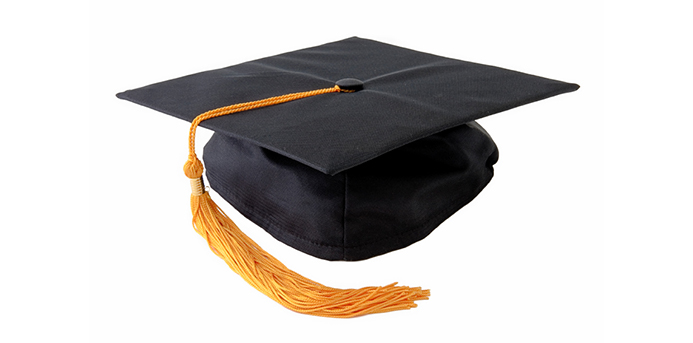“Did you cry?” friends asked about the college graduation of my oldest child, Nick.
“Actually, I missed the ceremony.” I answered sheepishly.
Seven thousand graduates in mortarboards and gowns triumphantly marched across Cornell University’s campus and into the football stadium for the sunny Sunday ceremony. Our family stood outside that stadium for more than an hour eagerly anticipating our moment to cheer and photograph Nick.
He never showed.
I immediately assumed that my firstborn had celebrated too hard (and too late) the night before. When I muttered angrily about this to Nick’s younger siblings, they attacked me: “Mom, why do you always assume the worst about your children?“
I stormed away from the stadium, crying with hurt, frustration and anger. I never joined my family at the ceremony.
My loss. Nick was at graduation after all. He hadn’t overslept; rather he had made a short detour from the procession into a restroom.
And yet, maybe it wasn’t a complete loss. I spent those few hours by myself. My initial anger had opened a floodgate of memories and emotions tangled up in more than 22 years of motherly love, worry, nurturing, play and work.
It’s become cliché, how fast our children grow up. But it really seems only a few years ago that I was reading as much as possible to Nick, first as a baby and then a toddler.
Despite my prodigious efforts (no hyperbole here, I even quit practicing law, in part, to spend more time reading to him), Nick couldn’t (or wouldn’t) read well into the second semester of second grade. He conversed like a bright, articulate child but refused to read even the simplest sentences.
Then one April day, I took a carload of children on a Museum of Science and Industry outing. Nick sat quietly in the “way back”—the backward-facing seat—of my fire-engine-red Volvo station wagon. When we returned home, he sprung out with a huge smile and an 80-page book in his hand. “Mom, I read this whole book on the way down and back!“
Literally overnight, Nick went from nonreader to voracious reader.
Go figure. Nick helps prove that everyone has different learning styles and that patience is an important ingredient of a fine education.
Don’t let my reminiscing and pontifications fool you. I’m not particularly patient. For Nick and most of his younger siblings, I’ve called on an army of experts to help make their education better. We’ve employed tutors specialized in every grade and academic area.
I know my children’s learning styles inside out and upside down because private psychologists, social workers, neurologists, psychiatrists and other specialists have tested, retested, analyzed, synthesized, prescribed, emphasized and eulogized their strengths and weaknesses over the years. I’ve attended dozens of school meetings with scores of experts to discuss a plethora of learning issues.
The good news, I’m told, is that for every educational weakness a corresponding strength exists. For example, I’ve heard: “Don’t worry so much about his/her poor organization. It’s the result of a [pick any one] visual spatial/auditory processing/visual motor learning disability that also produces great intelligence and creativity.“
And I had thought that the issues were just old-fashioned procrastination and insufficient interest and effort!
I don’t believe my family is an educational anomaly here on the North Shore. Though we are indeed fortunate, many others also use the services of our community’s Army of Academic Assistance Experts (which I have newly dubbed AAAE).
All things considered, please remember what I sometimes forget: Our love, attention and patience will always be the most important ingredient in our children’s educations. But also, let’s count our blessings and remember that when our children are truly struggling, we are fortunate to have so many talented experts close by.

